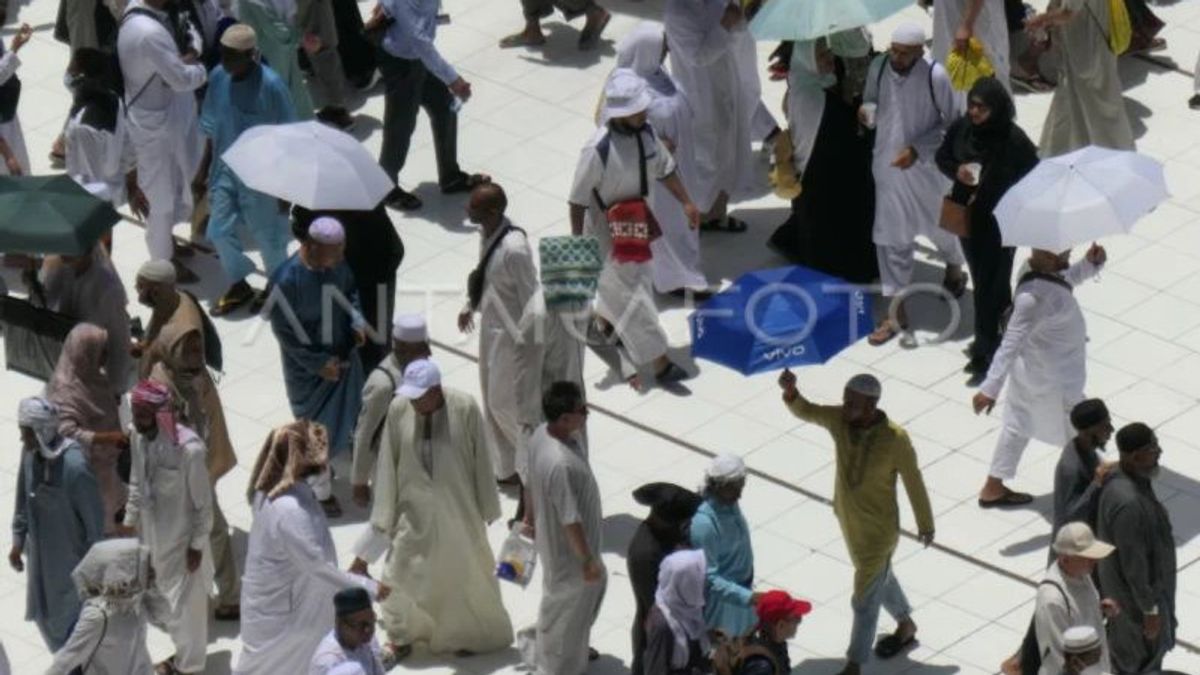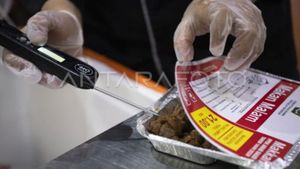JAKARTA - The Ministry of Health (Kemenkes) appealed to Indonesian Hajj participants to be aware of the threat of stroke during the procession of peak Hajj in Arafah, Muzdalifah, and Mina (Armuzna), given the hot weather in the Holy Land.
"Hajj pilgrims need to be aware of strokes, especially during wukuf in Arafah and Mina for three days," said Head of the Indonesian Hajj Health Office (KKHI) Medina Tri Atmaja as reported by ANTARA, Monday, June 26.
Heat stroke is that the body's condition cannot control the body's temperature. This condition occurs due to exposure to heat at high temperatures directly, causing an increase in the body's core temperature to more than 40 degrees Celsius.
Tri said the peak of the pilgrimage was marked by the Armuzna procession which was held from June 27 to July 1, 2023. The weather at that time was estimated to reach 44 degrees Celsius during the day.
"This condition, if not treated immediately, can cause organ damage such as the brain, heart, and kidneys," he said.
According to him, the health condition of stroke needs to be watched out for by Hajj participants, especially the elderly while in Armuzna.
Therefore, he reminded the congregation to recognize several symptoms of stroke, such as body temperature increasing to more than 40 degrees Celsius, fatigue, hot and dry skin.
Then the pulse and respiratory frequency increase, neurological disorders in the form of decreased thinking and concentrating abilities, drowsiness (strong feeling sleepy), and coma.
Atma menjelaskan penangananheat stroke harus dilakukan sesegera mungkin. Maka, saat jamaah melaksanakan prosesi pelun panta jamrah di Mina, telah disiapakan tenaga kesehatan yang akan disebar pada jalur menuju Jamarat. Tujuannya jika ditemukan peserta haji dengan gejahat stroke dapat segera dilakukan penanganan.
另请阅读:
"The most important thing in handling suffering stroke is the discovery of a fast case and handling as soon as possible before further complications of stroke," he said.
For this reason, Atma appealed to the congregation to drink 200 ml of water per hour slowly and not to wait for thirst. Hajj participants are also advised to drink one oralite sachet dissolved with 200 ml of water per day.
The congregation was also asked to bring a small towel which could later be wetted and compressed into the body to reduce body heat to avoid heat stroke.
"In order not to fall into heat stroke conditions, it is important for pilgrims to prevent dehydration. Don't wait for thirst and drink 200 ml of water per hour slowly," he said.
The English, Chinese, Japanese, Arabic, and French versions are automatically generated by the AI. So there may still be inaccuracies in translating, please always see Indonesian as our main language. (system supported by DigitalSiber.id)

















